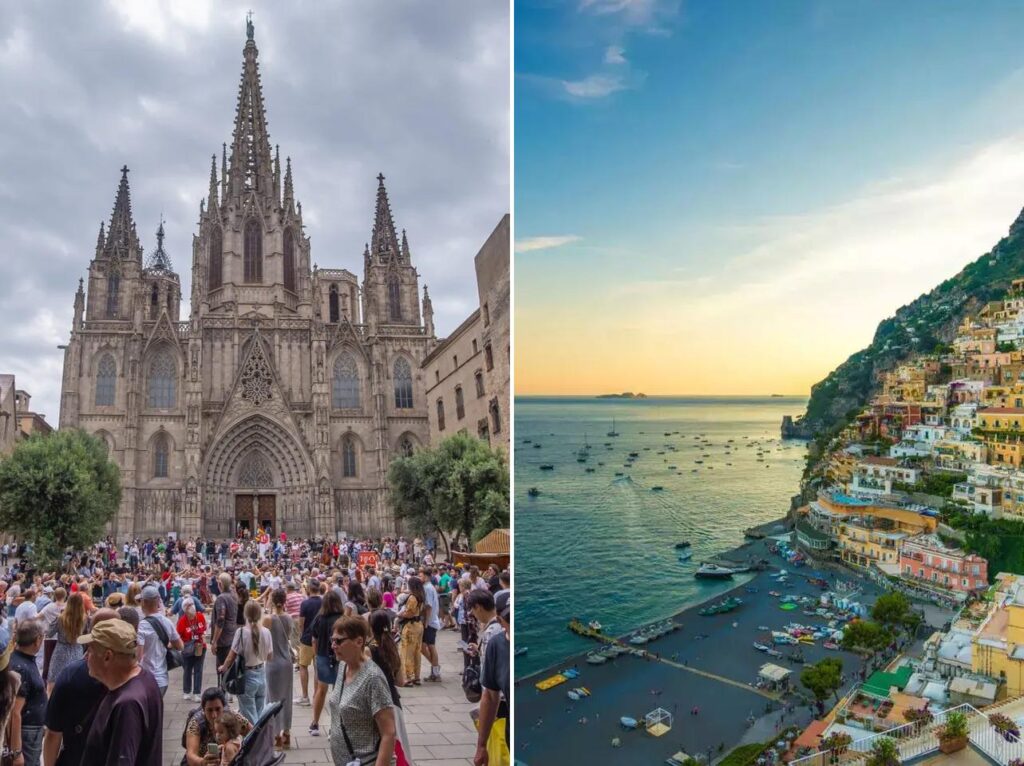Europe’s Overtourism Challenge: New Rules and Restrictions for 2025 Travelers

The Surge in Global Tourism
As the world emerges from pandemic restrictions, a significant surge in global tourism is reshaping travel dynamics, particularly in Europe. The year 2024 marked a milestone, with international tourist numbers surpassing pre-pandemic levels. This boom, driven by factors such as revenge travel, digital nomad programs, and golden visas, has led to an unprecedented influx of visitors. According to the United Nations tourism agency, over 285 million tourists traveled internationally by March 2024, a 20% increase from the previous year.
Impact on Local Communities and Infrastructure
The surge in tourism has not come without challenges. Popular European destinations are grappling with what experts term “overtourism,” as the sheer volume of visitors strains local infrastructure and housing markets. In cities like Barcelona, residents have expressed their frustration through protests, even resorting to spraying tourists with water guns. The overcrowding has led to changes in public transport routes and increased tensions between locals and visitors.
In Sintra, Portugal, traffic congestion around historic sites has prompted residents to form advocacy groups like QSintra, highlighting the impact on daily life. The situation has raised questions about the sustainability of tourism and the need for effective management strategies.
New Restrictions and Environmental Concerns
In response to these challenges, several European cities are implementing stricter visitor limits for 2025. Pompeii, for instance, has capped daily visitors at 20,000 to protect its UNESCO World Heritage site. Venice is expanding its entry fee system, while Greece plans to restrict cruise ships at popular islands. These measures aim to balance tourism with the preservation of cultural and environmental resources.
Environmental concerns are also at the forefront. Santorini has halted new construction due to water scarcity, which has already impacted local wine production. Amsterdam has introduced a policy allowing new hotels only if they demonstrate sustainable improvements, reflecting a broader trend towards environmentally conscious tourism.
What Travelers Need to Know
For travelers planning to visit Europe in 2025, it’s essential to be aware of these changes. Starting mid-2025, U.S. travelers will need to apply for ETIAS authorization before visiting 30 European countries. This online application, costing approximately €7, is valid for three years or until the passport expires. The European Union designed ETIAS to enhance border security and streamline entry processes. Travelers are advised to apply well in advance to avoid any complications, as some applications may require additional documentation.
As Europe navigates the complexities of overtourism, these new rules and restrictions highlight the need for sustainable travel practices that respect both local communities and the environment.









